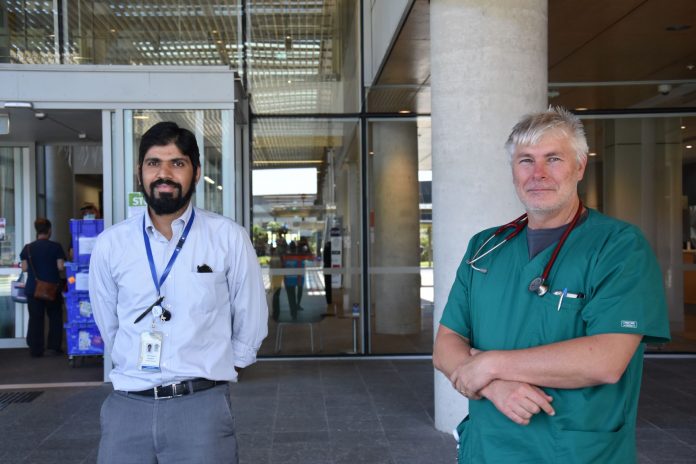Sunshine Coast Health is playing a crucial role in helping medical graduates from overseas transition to the Australian workforce.
The Sunshine Coast Hospital and Health Service is the second in Queensland to become an accredited Workplace Based Assessment hospital and health service, approved by the Australian Medical Council.
“The WBA program is an alternative to the Australian Medical Council Part 2 (AMC 2) clinical exam, which is a requirement for all International Medical Graduates on the standard pathway to General Medical Registration,” SCHHS Senior Medical Officer Dr Sheikh Naveed said.
“The program offers these graduates the opportunity to have their clinical skills and knowledge assessed in their current workplace by a WBA assessor here on the Sunshine Coast.
“Just as they do in the AMC 2 exam, the candidates must complete assessments in six clinical areas (Adult Medicine, Adult Surgery, Emergency Medicine, Child’s Health, Women’s Health and Mental Health).”
SCHHS Chief Executive, Adjunct Professor Naomi Dwyer, said there were five WBA candidates within SCHHS.
“It’s a small but mighty cohort and I am delighted the Coast continues to be a hub for the training of quality health clinicians,” Adj Prof Dwyer said.
“To support this program, we have a group of more than 40 senior medical officers and senior registrars who perform the role of WBA assessors and are based at Sunshine Coast University Hospital as well as our facilities at Caloundra, Nambour Maleny and Gympie.
“The WBA program operates as a cost neutral program and is funded by the candidate’s program fees.
“I wish the first cohort all the best and look forward to learning of their progress.”
Paul Jordan, a paramedic of 23 years, decided to become a GP, studying medicine in Samoa.
He is excited to be one of the first to access SCHHS Workplace Based Assessment Program.
A resident at Noosa Hospital in its public health ward, he said the WBA program will help his professional development as well as being more convenient and less stressful than the alternative, the more common AMC 2 clinical exam.
“Many doctors from overseas have English as a second language and the pressure of an exam in English can be intense,” he said.
“Reading it and translating a question, understanding it, it’s really tricky,” he said.
Help keep independent and fair Sunshine Coast news coming by subscribing to our free daily news feed. All it requires is your name and email. See SUBSCRIBE at the top of this article.
“This way it makes sense, because it’s not the pressure of one-day exam, it’s over a 10-month period that you do the workplace assessment. You’re given the time to prepare.
“You can assess your own progress and adjust how you’re performing if you need to, based on the assessments.
“With a one-day exam, you find out weeks or months later how you did. And the pass rate is so low most people assume they have to do it at least twice to pass.”
He chose the general practitioner career path because he wanted to continue caring for patients.
“I was a paramedic for 23 years, working around the world and in Australia. After a while you realise …where do you want to go?”
“I decided I wanted to treat patients and decided to become a doctor. I’ll be able to keep treating patients and make a difference to their healthcare.”





